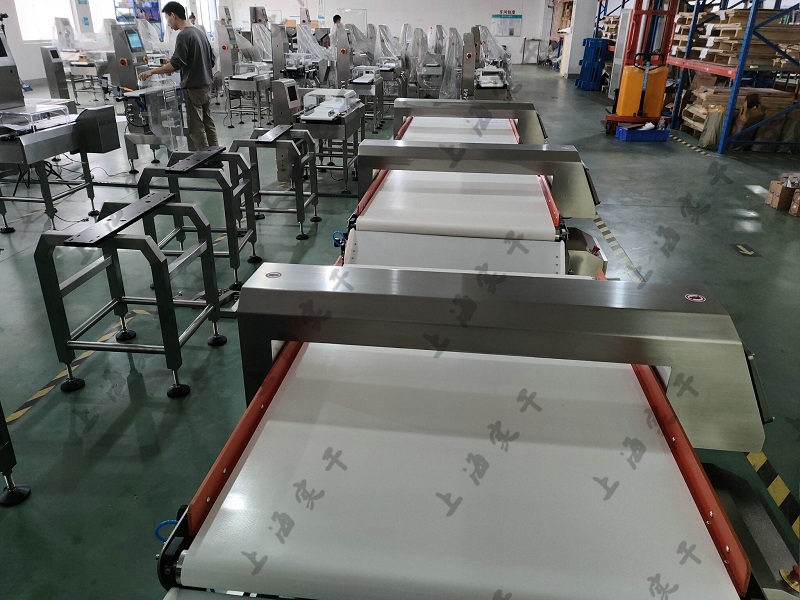Meat may go through a Metal Detector Machine for various reasons, primarily related to food safety and quality control. Metal detectors are commonly used in food processing facilities to ensure that the final products are free from metal contaminants.Here are some reasons why meat might be subjected to metal detection:

Foreign Object Detection:
Metal detectors help identify and remove any metal fragments or foreign objects that might have inadvertently entered the meat during processing. This could include metal pieces from machinery, tools, or other sources.
Quality Assurance:
Metal detection is a crucial step in quality assurance to meet food safety standards. Ensuring that meat products are free from metal contaminants helps prevent potential harm to consumers and maintains the overall quality of the product.
Compliance with Regulations:
Many food safety regulations and standards mandate the use of metal detectors in food processing facilities, including those handling meat products.
Consumer Safety:
Detecting and removing metal contaminants from meat products is essential for consumer safety. Consuming metal-contaminated food can pose health risks, and metal detectors play a vital role in preventing such incidents.
Process Control:
Metal detectors are part of the overall process control measures in food processing. Regular monitoring and detection help ensure that any potential issues with metal contamination are addressed promptly, minimizing the risk of contaminated products reaching consumers.

In summary, the use of metal detectors in the meat processing industry is a critical component of food safety measures, helping to identify and eliminate metal contaminants to ensure the quality and safety of the final meat products.